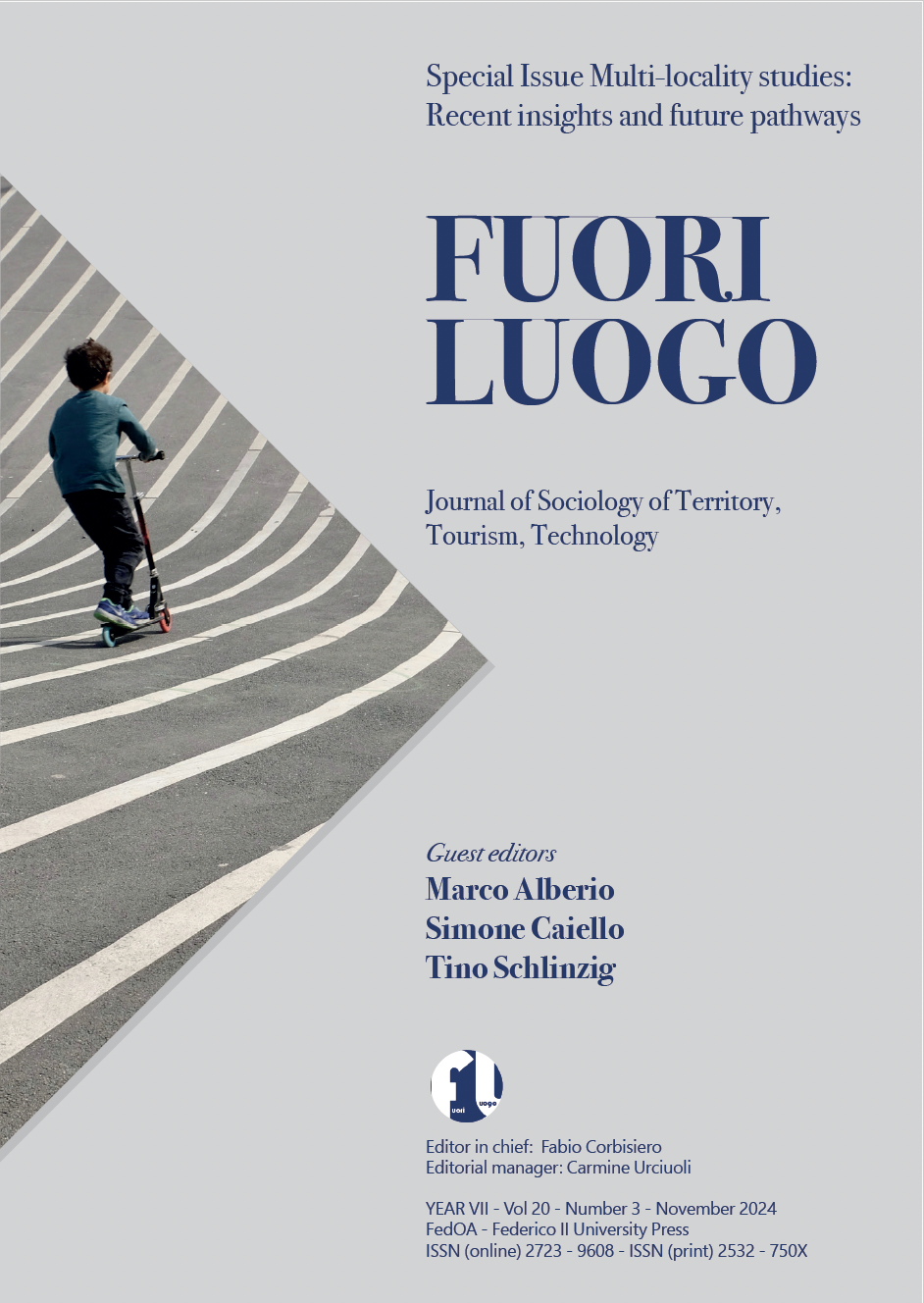The meaning of work: life stories and career trajectories of Ukrainian women from the domestic and home-care sector to the third sector
DOI:
https://doi.org/10.6093/2723-9608/10839Keywords:
Female migrant workers, occupational segregation, vertical job promotion, third sector, Ukrainian warAbstract
The Russian invasion of Ukraine has had consequences for a segment of Ukrainian female workers who have been living for years in Naples, a city with a rooted presence of that community. The growing demand for linguistic and cultural mediators in the local third sector, linked to needs of the fleeing population, has necessarily intercepted a workforce that has been present in the area for a long time and employed exclusively in the domestic and home care sector.
Adopting the biographical-narrative approach, we have identified ten Ukrainian female workers as protagonists in the transition to the third sector with the aim of investigating those career trajectories characterized by the exit from the «domestic work trap» (Fullin & Vercelloni, 2009, p. 433). Capturing them in this phase of transition between jobs has allowed, first of all, to reconstruct the processes of creation and transformation of their courses of action also in relation to broader social phenomena. Furthermore, the continuous reference to past, present, and future - typical of the adopted approach - has allowed to shed light a posteriori on the paths of migrant workers involved in the domestic and home care sector characterized by social and work invisibility.
Following a work-oriented interpretation, in the analysis of transition from old to new employment, the interviews are mainly analysed through the three functions that work fulfils: material, expressive, and socialization. Starting from the three functions, the interviewees make sense of work, weighing the meanings attributed to them. The attributed meaning that prevails in terms of subjective relevance becomes a selecting principle that guides the sense of work choices and the purposes of profit between the material and symbolic plane. They testify, therefore, that individual work choices do not respond solely to criteria of a strictly economic nature and that economic and non-economic motivations are deeply intertwined: the daily new work experiences are an opportunity both to express one’s potential and work capabilities repressed by years of work within domestic walls and to promote renewed horizons starting from the awareness of an integration so far not successful. All mothers, it is when they talk about their children that the meaning attributed to the current work trajectory is revealed: that related to the desire to achieve greater social recognition pursued with the transition from the role of caregiver and/or housekeeper to that of social worker, which is perceived as a lever of emancipation for themselves and their families.


